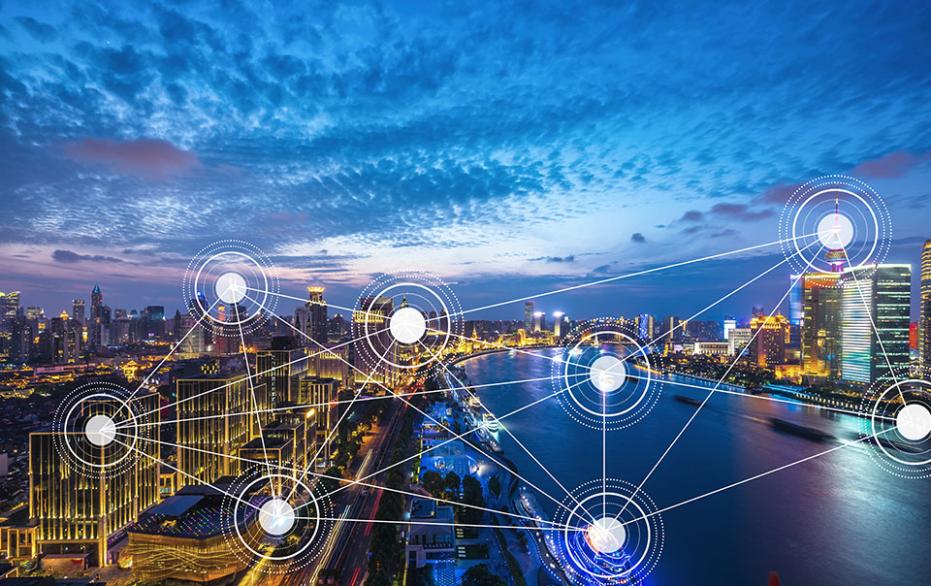Can Artificial Intelligence Revolutionize Urban Planning and Management in Smart Cities?
Smart cities are rapidly emerging as the future of urban living, offering a host of benefits such as improved efficiency, sustainability, and quality of life. At the heart of smart cities lies effective urban planning and management, which play a crucial role in shaping the built environment and ensuring its smooth operation. Artificial intelligence (AI) is poised to revolutionize urban planning and management, bringing forth a new era of data-driven, efficient, and sustainable city development.

AI In Urban Planning:
AI-powered Data Analysis:
- AI algorithms can collect and analyze vast amounts of data from various sources, including sensors, IoT devices, social media, and more.
- This data can be used to identify patterns, trends, and insights that inform planning decisions.
- AI can optimize land use, transportation networks, and infrastructure development based on real-time data and predictive analytics.
AI-enabled Simulations And Modeling:
- AI algorithms can create virtual models of cities to simulate different planning scenarios.
- These simulations can evaluate the impact of proposed changes on traffic flow, energy consumption, air quality, and other factors.
- AI can help identify potential problems and optimize solutions before implementation.
AI-driven Design And Visualization:
- AI algorithms can generate creative and innovative urban designs based on data and constraints.
- AI can create realistic 3D visualizations of proposed developments, enhancing stakeholder engagement and decision-making.
- AI can facilitate virtual public consultations and feedback sessions, promoting transparency and inclusivity.
AI In Urban Management:
AI-powered Traffic Management:
- AI algorithms can monitor traffic conditions in real-time using sensors and cameras.
- AI can optimize traffic signals, reduce congestion, and improve overall traffic flow.
- AI can implement intelligent transportation systems (ITS) for seamless mobility and reduced emissions.
AI-enabled Energy Management:
- AI algorithms can analyze energy consumption patterns and identify inefficiencies.
- AI can optimize energy distribution and utilization in buildings and infrastructure.
- AI can promote renewable energy sources and microgrids for sustainable energy management.
AI-driven Waste Management:
- AI algorithms can optimize waste collection and routing, reducing costs and emissions.
- AI-powered smart waste bins can monitor fill levels and optimize collection schedules.
- AI can enable AI-enabled waste sorting and recycling systems, reducing landfill waste and promoting circular economy.
Challenges And Considerations:
Data Privacy And Security:
- The use of AI in urban planning and management raises concerns about data privacy and security.
- Robust cybersecurity measures must be implemented to protect sensitive personal data.
- Responsible collection, storage, and use of data are essential to maintain public trust.
Ethical And Societal Implications:
- AI algorithms must be designed to avoid biases and ensure fairness and equity in planning and management decisions.
- The use of AI should be balanced with human expertise and values to ensure ethical and responsible decision-making.
- Public engagement and transparency are crucial to address ethical concerns and build trust in AI-driven urban planning and management.
Infrastructure And Technological Requirements:
- Implementing AI in urban planning and management requires investment in smart infrastructure, sensors, and IoT devices.
- Interoperability and standardization of data and systems are essential for effective AI applications.
- Adequate training and capacity building are necessary to ensure the successful adoption and use of AI technologies.
Artificial intelligence has the potential to revolutionize urban planning and management in smart cities, leading to improved efficiency, sustainability, and quality of life. However, responsible and ethical implementation of AI is crucial to address concerns about data privacy, ethical implications, and infrastructure requirements. By harnessing the power of AI, cities can create more livable, sustainable, and resilient urban environments for the future.
YesNo

Leave a Reply